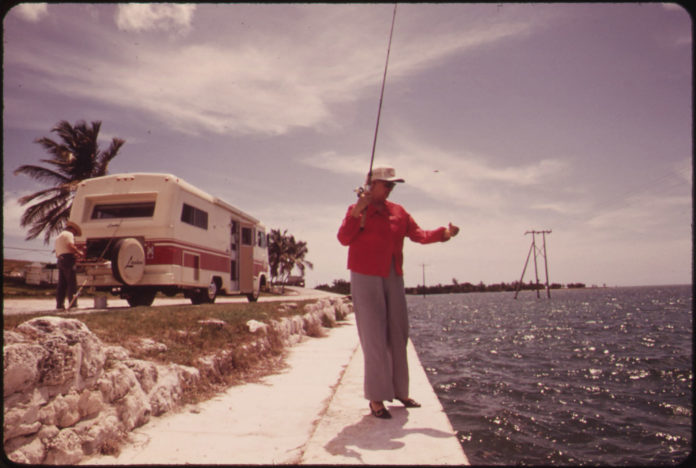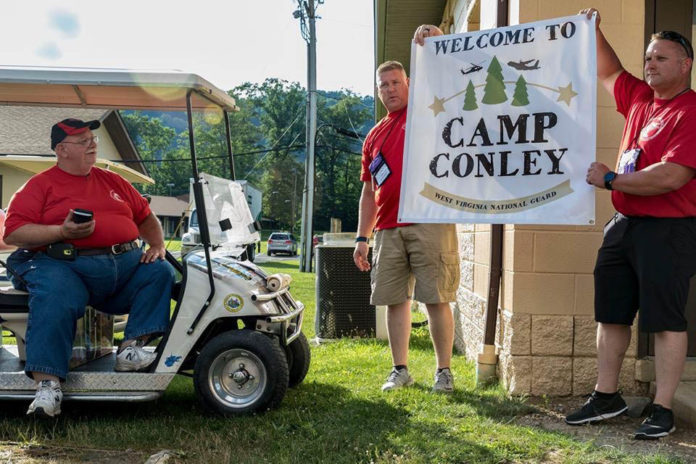Looking for your ideal retirement home? Below are some of the states that might not be right for you. While each one has plenty of benefits, we think you might find that alternative states could suit you better for your retirement.
17. New Jersey

If all you want to do in your retirement is play golf, New Jersey might be the state for you, otherwise, you may want to look elsewhere. State and local tax rates in New Jersey are the second-highest in the entire country, and real estate is right up there amongst the most expensive in the USA. New Jersey’s cost-of-living is 22% higher than the national average. If you want your retirement dollars to go as far as they can, this is not the state for you.
16. California

It can’t be denied that California has some of the world’s most enticing cities, along with some glorious scenery. If you’re there on vacation, you can’t beat wine tasting in Sonoma or the Napa Valley, a hike through Yosemite National Park with its extraordinary mountain scenery and river systems, and a drive down the Pacific Coast on Route One should be on everyone’s bucket list. However, in terms of retirement, you’ll probably want to give California a miss. The cost of living in California is the second-highest in the nation, with the highest sales tax anywhere in the USA and many other taxes that could quickly drain your retirement pot.
15. New York

Wherever you spent your working life, New York State is always going to be more expensive, with the cost of living being 29% above the national average. It is also almost at the bottom of the list in terms of healthcare provision and quality of life for senior citizens. There is no denying it’s a lovely state for a short vacation, but retirees should probably be looking elsewhere for their forever home.
14. Connecticut

With high levels of state income tax and local property tax, Connecticut is not the ideal location for retirees looking to save money. It looks like things are going to get worse as well; large corporations like Aetna and General Electric have moved out of state, causing significant tax losses to the state. Anyone who retires to Connecticut may have to face the fact that their tax bill is likely to see significant year on year increases.
13. Alabama

Sweet home Alabama might not be such a sweet place to retire if you haven’t got a robust shelter to keep yourself safe during the tornado season. On the plus side, the state’s cost-of-living is lower than average, helping retirees who have to watch their budget. However, sexual and racial discrimination are very much ongoing live issues for Alabama, and if that makes you uncomfortable it might not be the best place for you.
12. Illinois

There’s no denying that Illinois is a wonderful place for those who love the outdoors, with year-round adventures on offer in the state parks and on the rivers and hiking and biking trails. However, for those looking to settle down, it should be noted that Illinois is the second-worst state for senior citizen wellness, and in the bottom 20% for cost-of-living. There are some concessions to senior citizens in terms of an annual tax rebate, but these won’t necessarily cover high property taxes, and that’s before you factor in an 8.19% state sales tax as well.
11. Washington

When you think of the Pacific Northwest, you probably think of beautiful scenery, clean air, and general healthiness; however, Washington state is ranked fifth from the bottom for those in retirement. It may be called the Evergreen State, but it’s in the bottom 25% of US states by the measures of crime, weather, cost-of-living, and wellness.
10. Alaska

You might have been on a cruise to Alaska and been impressed by the stunning scenery and wildlife, but for a real-world, everyday living you might want to remember it has the worst weather in the whole United States and the highest crime rate (along with New Mexico). You can definitely consider Alaska for a wonderful vacation, but living there could be very different in your retirement. The cost of living is extremely high, and while state and city taxes aren’t too bad, healthcare costs are enormous; the majority of residents actually fly out of state to Seattle for nonemergency treatment to save money.
9. Maryland

Bankrate.com has ranked Maryland as the worst state to retire to this year, which should give retirees pause for thought. The Old Line State gets poor ratings for culture, cost-of-living, and wellness. State taxes are high, with both gas tax and inheritance tax being increased in the recent past. If you want to live in a safe neighborhood, housing stock is costly, and although living on the coast might seem attractive, you won’t find the flood insurance premiums attractive at all. To be honest, the good weather is about the only thing Maryland has going for it.
8. Oregon

For the cities along Oregon’s coast, such as Portland, housing costs increased by 7.5% over the last 12 months. Whether that is compensated for by the lack of sales tax depends on your shopping habits. You’ll certainly want to be buying an umbrella, rain boots and a raincoat if you move to the West Coast of Oregon, to cope with an average yearly rainfall of 200 inches. Ironically, you’ll also have to cope with some polluted skies due to a spate of long-running forest fires in the region.
7. South Carolina

South Carolina has a cost of living 7% below the national average, and this is matched by low salaries. Unfortunately, this means access to healthcare is very uneven in a state ranked in the top 10 most obese in the country. Recently South Carolina has also been suffering from a rocketing crime rate. However, if you find that low cost-of-living attractive, there are some safe small towns available: check out the suburbs such as Edgefield or Wellford.
6. Texas

If you’re concerned about access to healthcare in your retirement, you might want to think twice before considering Texas. The physician-patient ratio in Texas is the third-worst in the US, and it can be problematic to find specialist care. Nursing homes frequently have staffing problems and are the subject of more hotline complaints than any other. Factor in high crime rates and Texas doesn’t really fit the bill as a retirement paradise.
5. Louisiana

One of the prime requirements for retirees is good weather; that’s one thing you won’t get in Louisiana, with stifling humidity and category four and five hurricanes visiting every summer. In addition, taxes are high at nearly 10% and crime levels are the second-highest in the nation. Add to that a health system that is best described as inadequate and you may well decide your retirement dollar is best spent elsewhere.
4. Minnesota

Unless you spent your working life at the North Pole, the 44.3 inches of snow each year and average January low temperatures of 0.2° might make you think twice about retiring to Minnesota. Additionally, the cost of living is higher than the average state, even though incomes are below average, and state taxes on Social Security benefits are as high as those imposed by the federal government; the state also taxes virtually every other retirement benefit, including government, military, and private pensions. On top of that, income tax and state sales tax are also above average; this isn’t a state for those watching the pennies in their retirement.
3. Kentucky

The bluegrass state may look an attractive place to retire, but you need to consider the fact that it has some of the most expensive retiree healthcare anywhere in the US. Poverty is rife throughout Kentucky, and so you won’t find many facilities to entertain seniors. Low cost of living and tax rates and make Kentucky look superficially worth consideration, but you should really think carefully before choosing it for your retirement, particularly if you’re going to need healthcare support.
2. New Mexico

If the high housing costs in New Mexico (up to 20% above the national average, particularly in larger cities such as Santa Fe) don’t put you off, New Mexico suffers from more violent crime than almost anywhere else in the nation. It certainly enjoys a nice warm climate, but the downsides will outweigh that for most retirees.
1. West Virginia

West Virginia’s cost-of-living, at 3% below the national average, might make it seem attractive for retirees. Caution is needed, however, as healthcare costs are some of the highest in the country, and coal mine closures have caused high poverty levels which in turn have driven up crime rates.


































